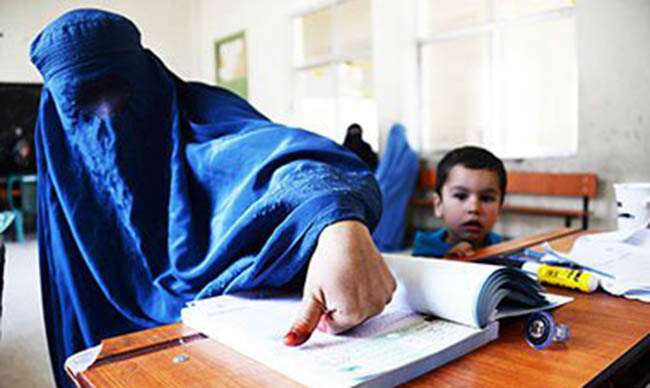KABUL - Less than a year before Afghanistan is due to hold much-delayed parliamentary elections, technical problems and political wrangling are hampering a project seen as vital to ensuring the country’s long-term stability.
Ever since the fraud-tainted presidential election of 2014, the Kabul government and its Western backers have been wrestling with the problem of how to hold fair and transparent elections. Parliamentary and district council polls scheduled for July 7 are seen as a major political test and dry run for the next presidential vote in 2019.
But delays in creating reliable voter registration systems and opposition to an election commission many critics judge is too close to President Ashraf Ghani have raised doubts about whether organisers of the vote - previously slated for October 2016 - will meet the latest deadline.
“The date is July 7 but no-one really believes it will happen on that day,” said one Western official in Kabul who follows the election process closely.
For Western countries, desperate for progress after 16 years in Afghanistan, some measure of fudge or delay may be acceptable.
But after repeated postponements since parliament’s mandate expired in 2015, there are fears the shaky political stability achieved since the Taliban government was ousted in 2001 will be undermined if the process is derailed completely.
“If elections do not take place, you go back to square one and you’re asking, how do you actually do the division of political power?” said Pernille Dahler Kardel, deputy representative of the United Nations Secretary General in Afghanistan.
“It’s to drive that longer term agenda that the international community is so absolutely focused on the electoral agenda.”
Electoral reform was one of the centrepieces of the U.S.-brokered deal between Ghani and his former rival Abdullah Abdullah, who joined him in a national unity government after months of wearying negotiations in 2014.
Last week, Ghani pledged to meet the July date and the UN signed an agreement with Afghan authorities creating the legal footing for the UN and donor countries to support the process.
Imam Mohammad Warymoch, chief electoral officer of the Independent Election Commission, said the IEC was “committed to doing the election on time” but admitted: “At the moment, we are a little bit behind.”
VOTER REGISTRATION
Warymoch said much of the assessment work on thousands of polling stations across Afghanistan, many in areas outside government control, had been completed. But there are still major worries over the rollout of a sufficiently robust voter registration system.
The commission has still not awarded the contract to manage a sophisticated biometric system that Ghani wants to identify voters and match them to allotted polling centres.
Mindful of the technical hurdles in rolling out an untested system in under nine months, some Western officials have urged using a simpler paper-based system. But whatever happens, a decision is needed urgently if it is to be ready next year.
“The key decision that needs to be made now is how you are settling the polling centre-based voter registration lists because it takes time,” Dahler Kardel said.
Technical issues are not the only problem, however. Suspicions left over from 2014 have fed accusations of bias, disputes in parliament and angry battles over the make-up and independence of the commissioners supervising the vote.
Bashir Ahmad Tayanj, a member of parliament close to General Rashid Dostum, the vice president currently in exile in Turkey after accusations of severe human rights abuses, said public trust had been undermined by political “interference”.
He said political movements critical of the government wanted a free and fair election but added: “We have our concerns and we are not sure the election will take place next year.”
Ghani’s spokesman, Shah Hussain Murtazawi, said election commissioners were independent and had been selected through a fair and transparent process. “There is no interference from the president or the government,” he said.
For its part, the IEC says it has faced intense pressure from political interests opposed to holding elections on time because they feared losing power.
“There are groups trying to blackmail us. There is huge propaganda on Facebook, in parliament,” Warymoch said.
He said much of the discussion over the biometric voter registration contract, for which only one company submitted a bid, was aimed at deliberately delaying the process.
“There are people looking to kill time,” he said.
Unless the issues are resolved, a repeat of the 2014 debacle would become a real possibility, dealing a severe blow to hopes of political stability, the Western official said. (Reuters)
Home » Afghanistan » Afghanistan Election Plans Face Political, Technical Test
Afghanistan Election Plans Face Political, Technical Test

